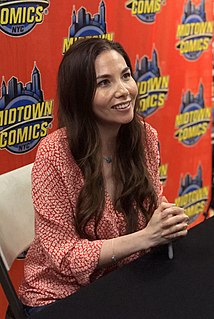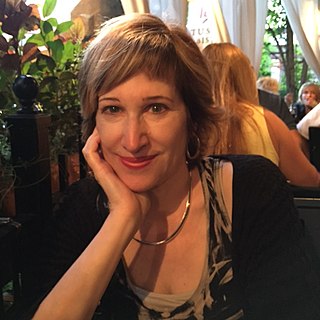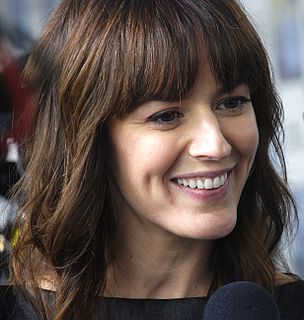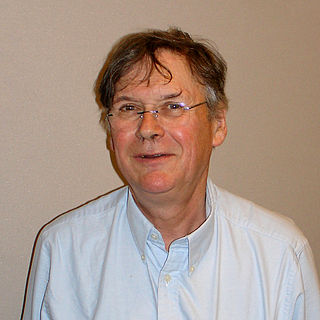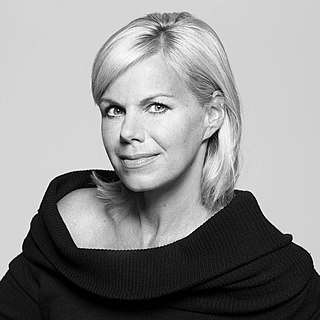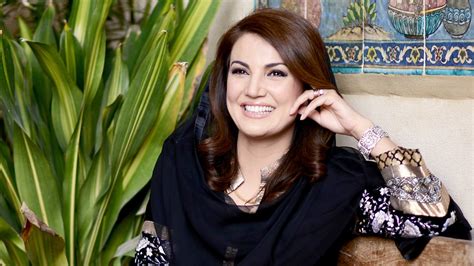A Quote by Hope Jahren
The evasion of justice within academia is all the more infuriating because the course of sexual harassment is so predictable. Since I started writing about women and science, my female colleagues have been moved to share their stories with me; my inbox is an inadvertent clearinghouse for unsolicited love notes.
Related Quotes
I started out writing romance novels, and that's a side of publishing that's very female oriented. 99.9% of the writers are women, most of the editors are women, and these are books written for the female gaze. And so my point of view - the way I looked at fandom and publishing and writing - was all about women. So for me that's what was natural, that's what was comfortable. And then I moved over to comics. And all of a sudden it was... Pardon the expression, it was a sausage fest.
We talk about sexual harassment in the workplace, but there's sexual harassment in schools, right? There's sexual harassment on the street. So there's a larger conversation to be had. And I think it will be a disservice to people if we couch this conversation in about what happens in Hollywood or what happens in even political offices.
We need more female directors, we also need men to step up and identify with female characters and stories about women. We don't want to create a ghetto where women have to do movies about women. To assume stories about women need to be told by a woman isn't necessarily true, just as stories about men don't need a male director.
Hey, folks, look at all the damage that Bill Clinton has done to feminism. First, oral sex is not sex now. You got a Lewinsky, it isn't sex. And sexual harassment, you know what it used to be? All you had to have for sexual harassment was for a superior in your office to use his power to have his way with you, no matter whether you wanted it or not. Now that's out the window. Because we can't, of course, have Bill Clinton said to have engaged in sexual harassment. No way. Not gonna happen.
It had also been my belief since I started writing fiction that science fiction is never really about the future. When science fiction is old, you can only read it as being pretty much about the moment in which it was written. But it seemed to me that the toolkit that science fiction had given me when I started working had become the toolkit of a kind of literary naturalism that could be applied to an inherently incredible present.
At the beginning of my career, a more senior photographer told me to shoot stories on women and I didn't want to. But I spent two and a half years in India and chose to do stories about women because I was shocked by their treatment. My stories in the Middle East and on the border of Europe and Asia were a response to my time in India. They weren't driven by a feminist idea but when you're moved by women's issues in these countries you can't help becoming a feminist somehow.
On the question of women's sexual freedom or female independence, there are still issues that haven't been worked out. There's an aura of traditional gender roles that is not talked about that really permeates these conversations. There is this vacillation between a desire for independence and having the kinds of sexual freedom that men have and, on the other side, issues about female vulnerability and susceptibility to male aggression and violence. We need more honesty about the actual conditions in which sex is happening.
I started a writing class, not in service of writing a script or writing anything specific. I've just really been enjoying that, and oddly the group, not by design, but it just happened to be all women, and there were three women who gave birth this fall while we were all in class, and there's just something really great about getting to know these women through their stories and what they're writing about.
For girls and women, storytelling has a double and triple importance. Because the stories of our lives have been marginalized and ignored by history, and often dismissed and treated as 'gossip' within our own cultures and families, female human beings are more likely to be discouraged from telling our stories and from listening to each other with seriousness.
My inbox is now bulging with touching emails from young women scientists who have been kind enough to write and thank me for inspiring them and helping them on their way. It has also been of great comfort to me to see many women at the top of science testifying for my record in supporting women scientists.

